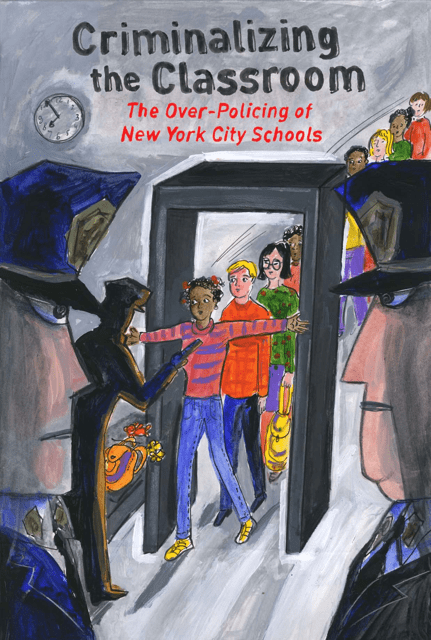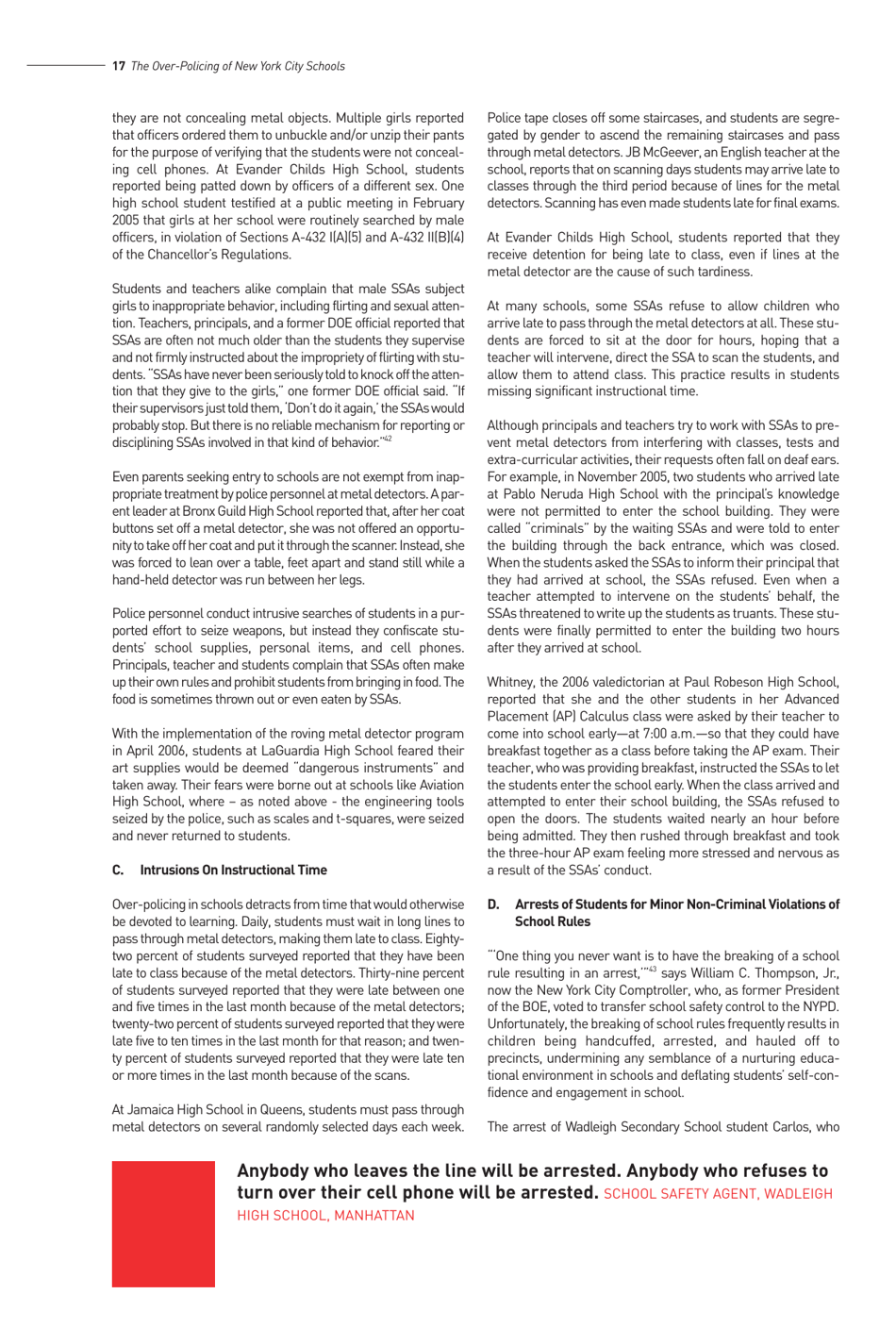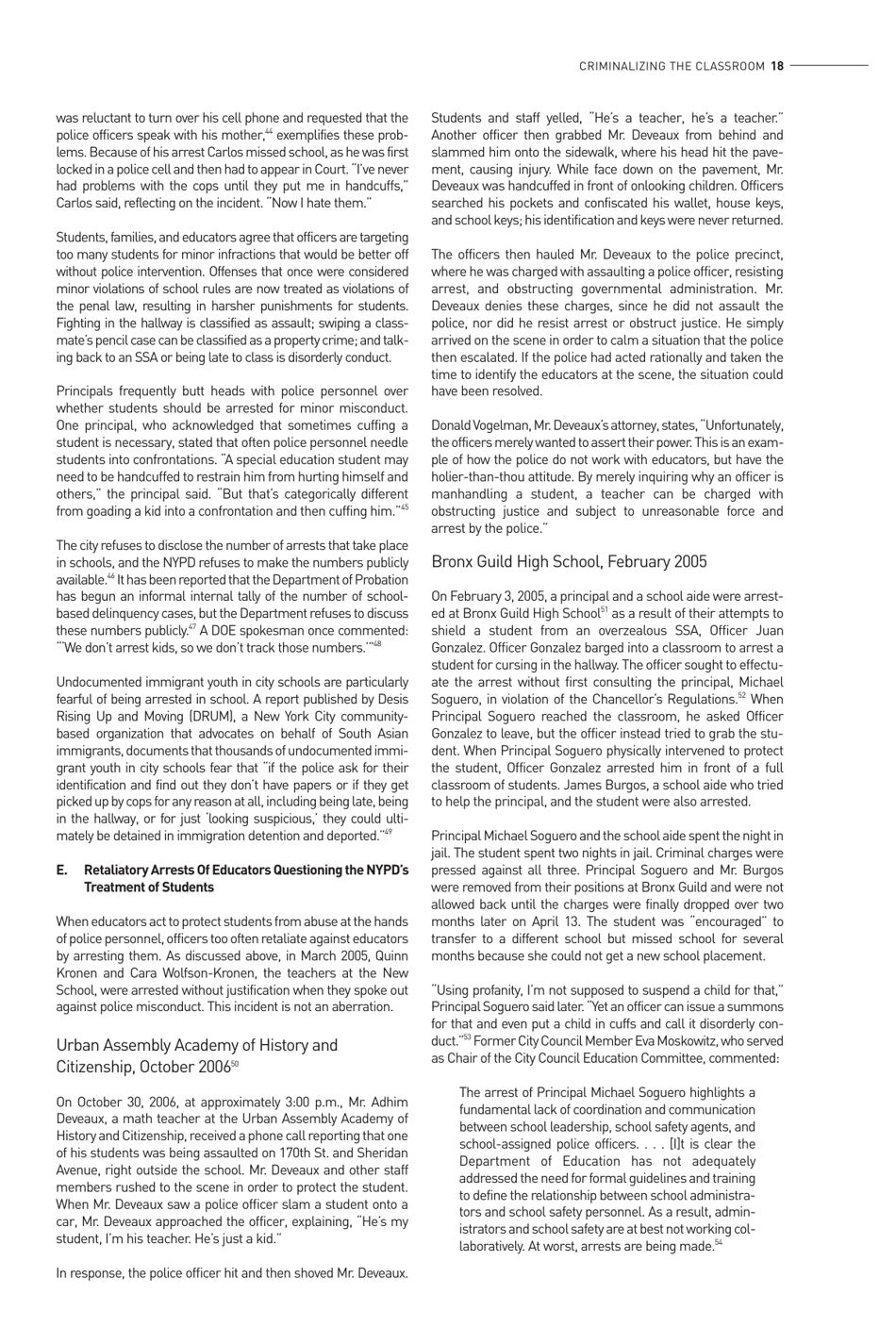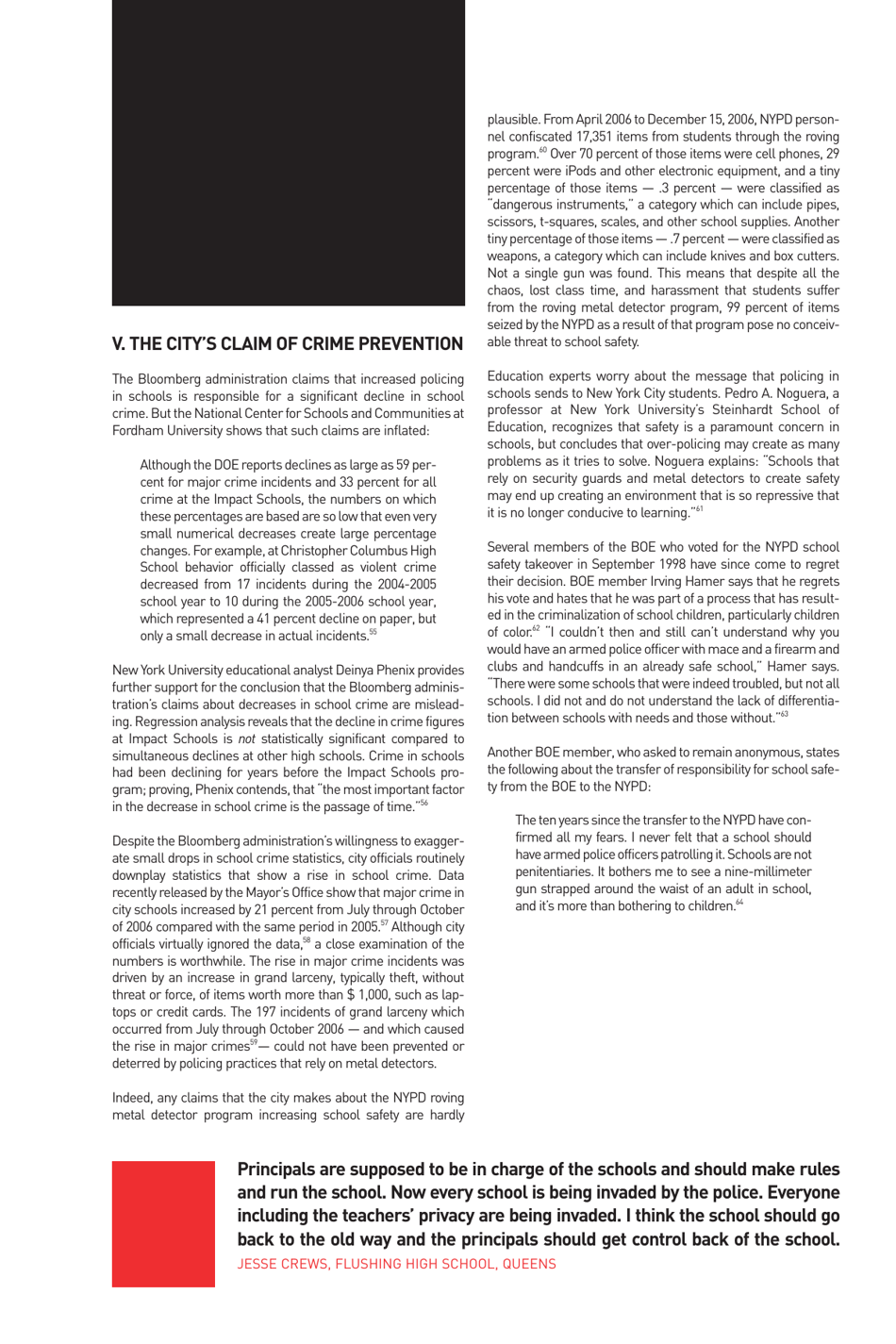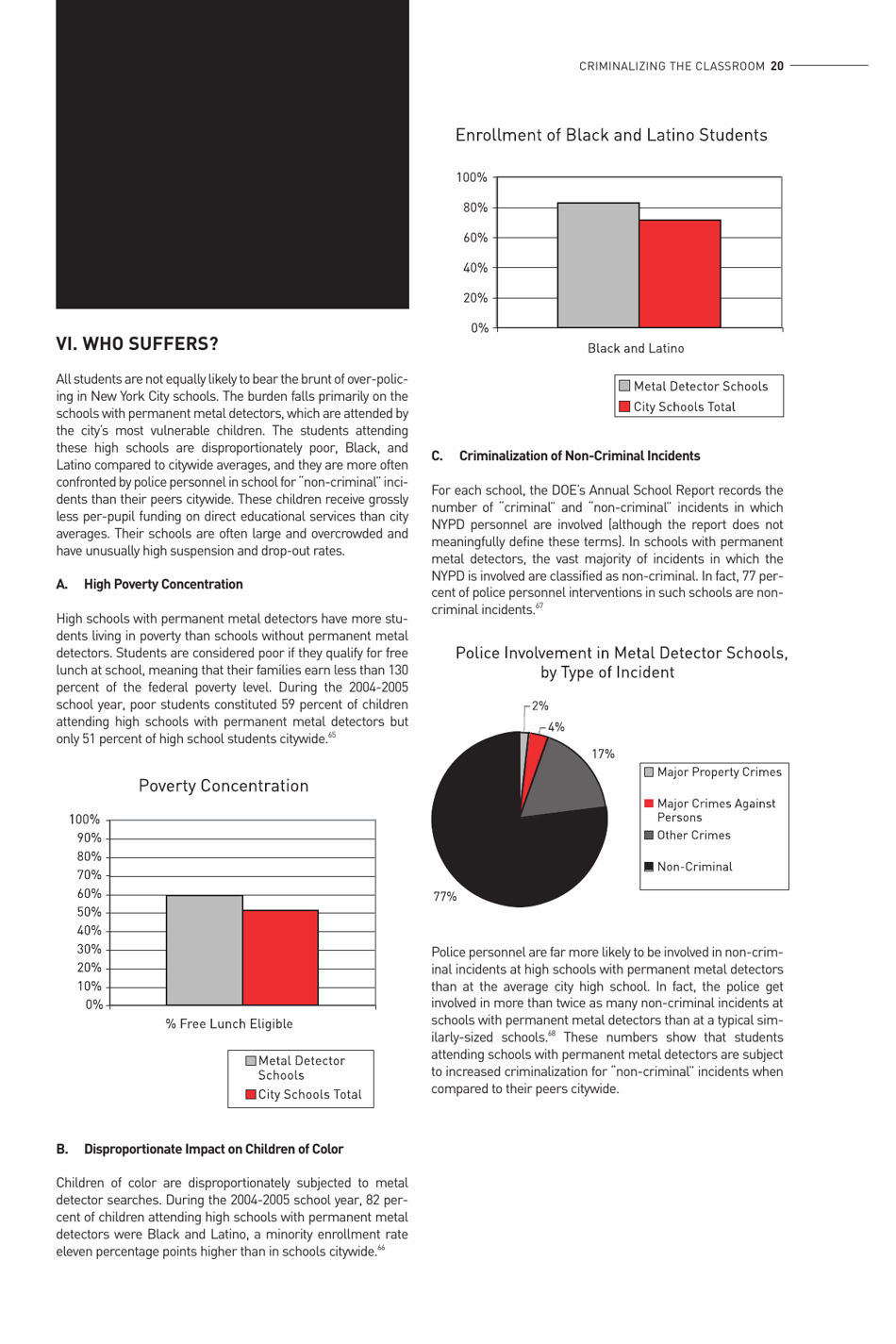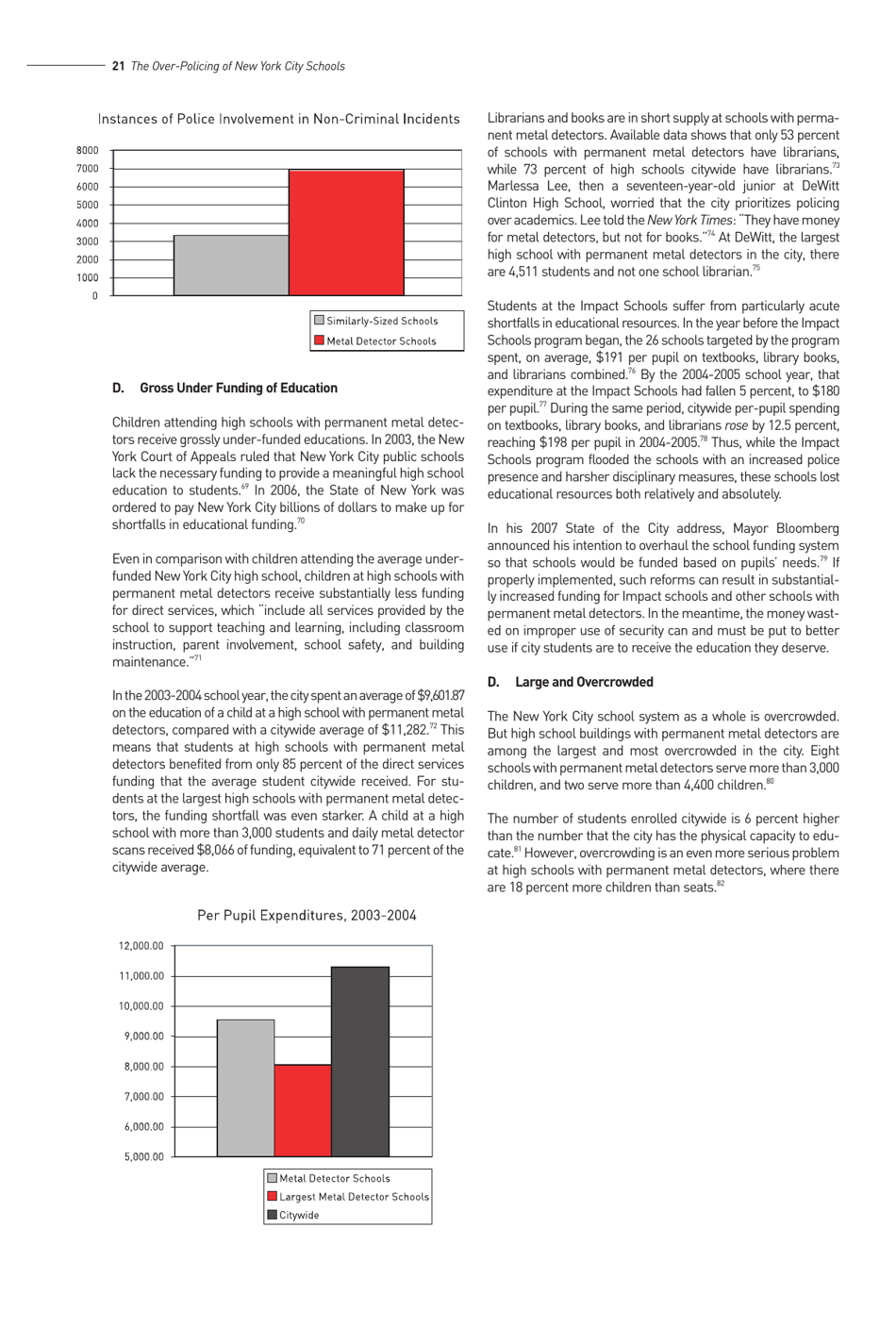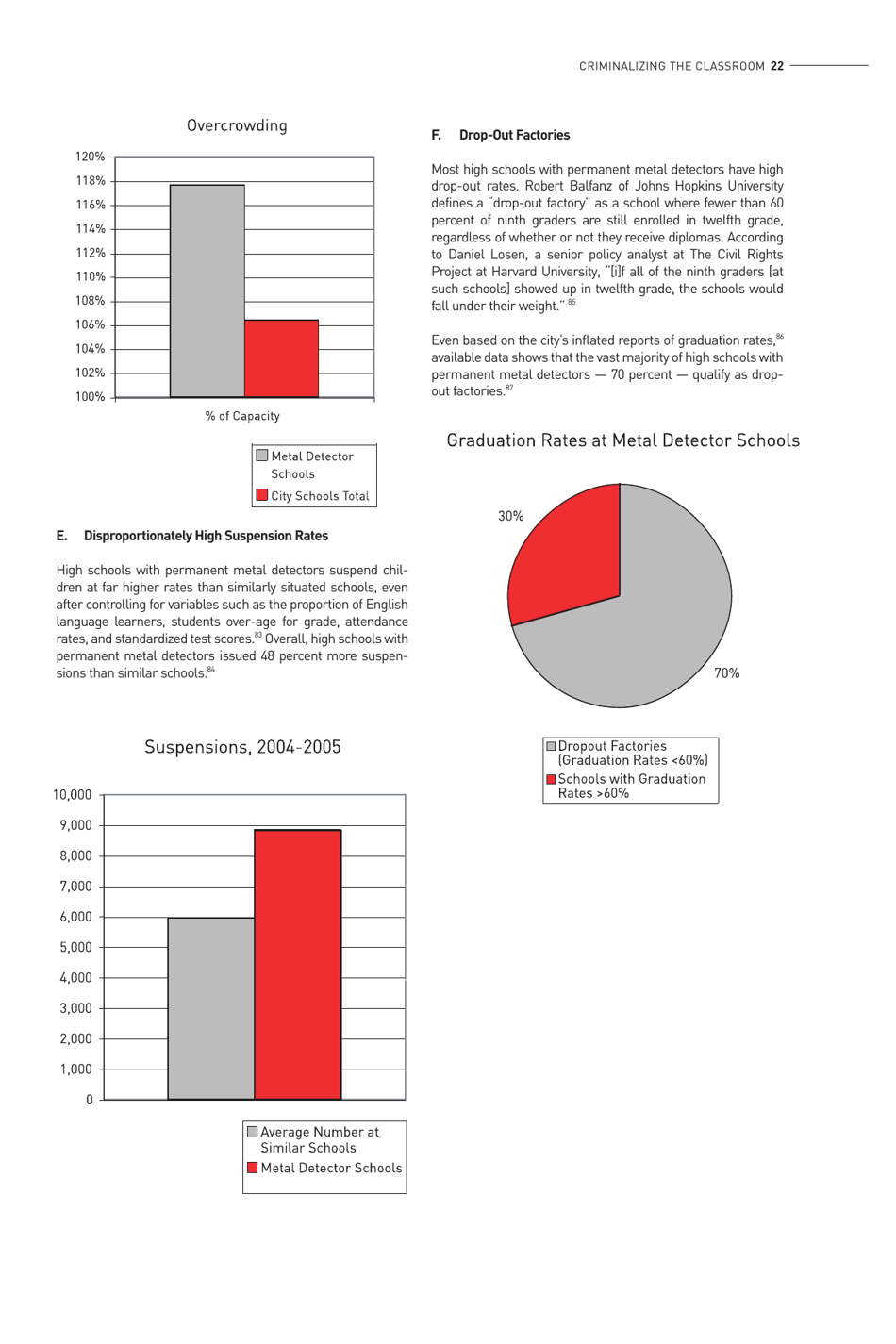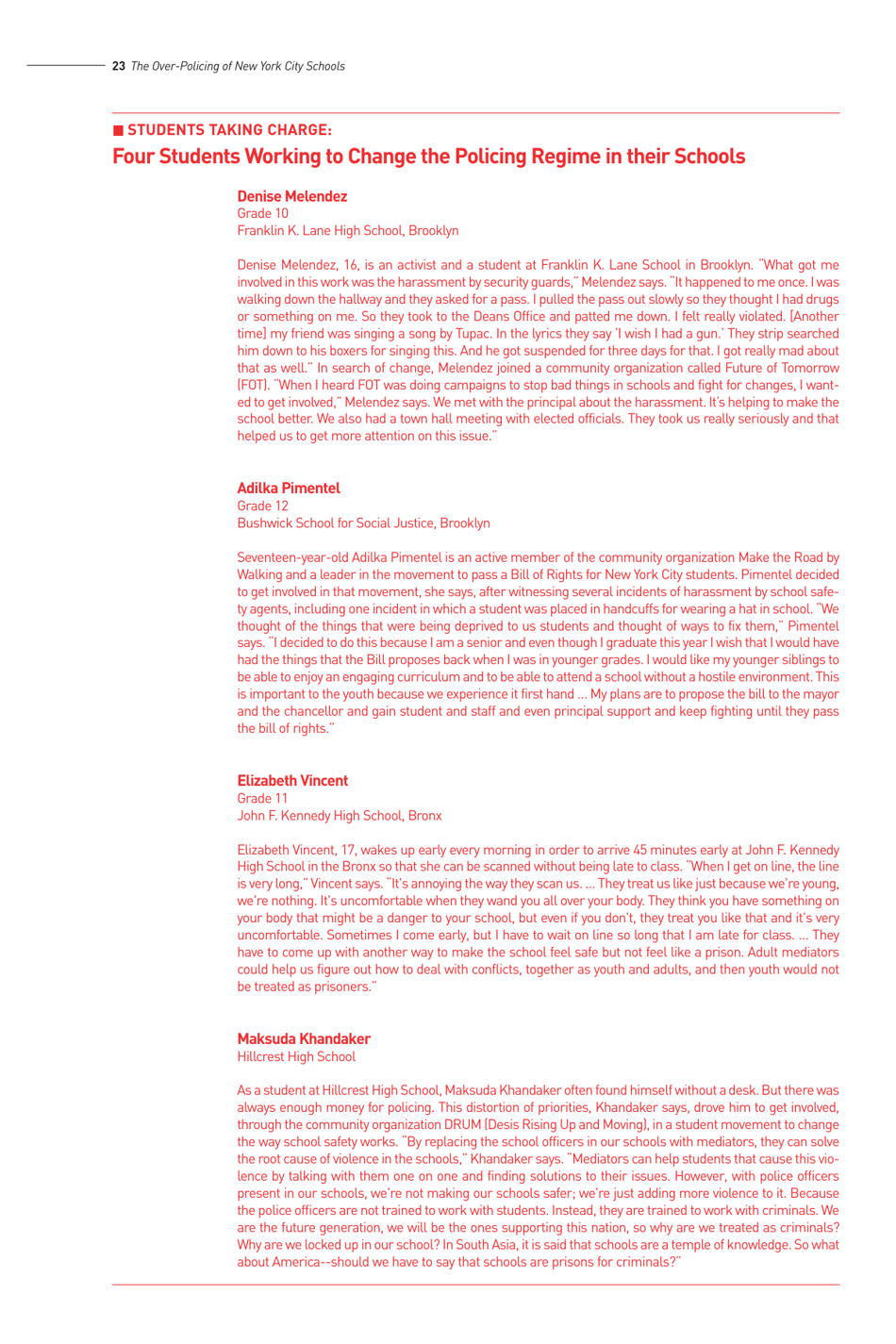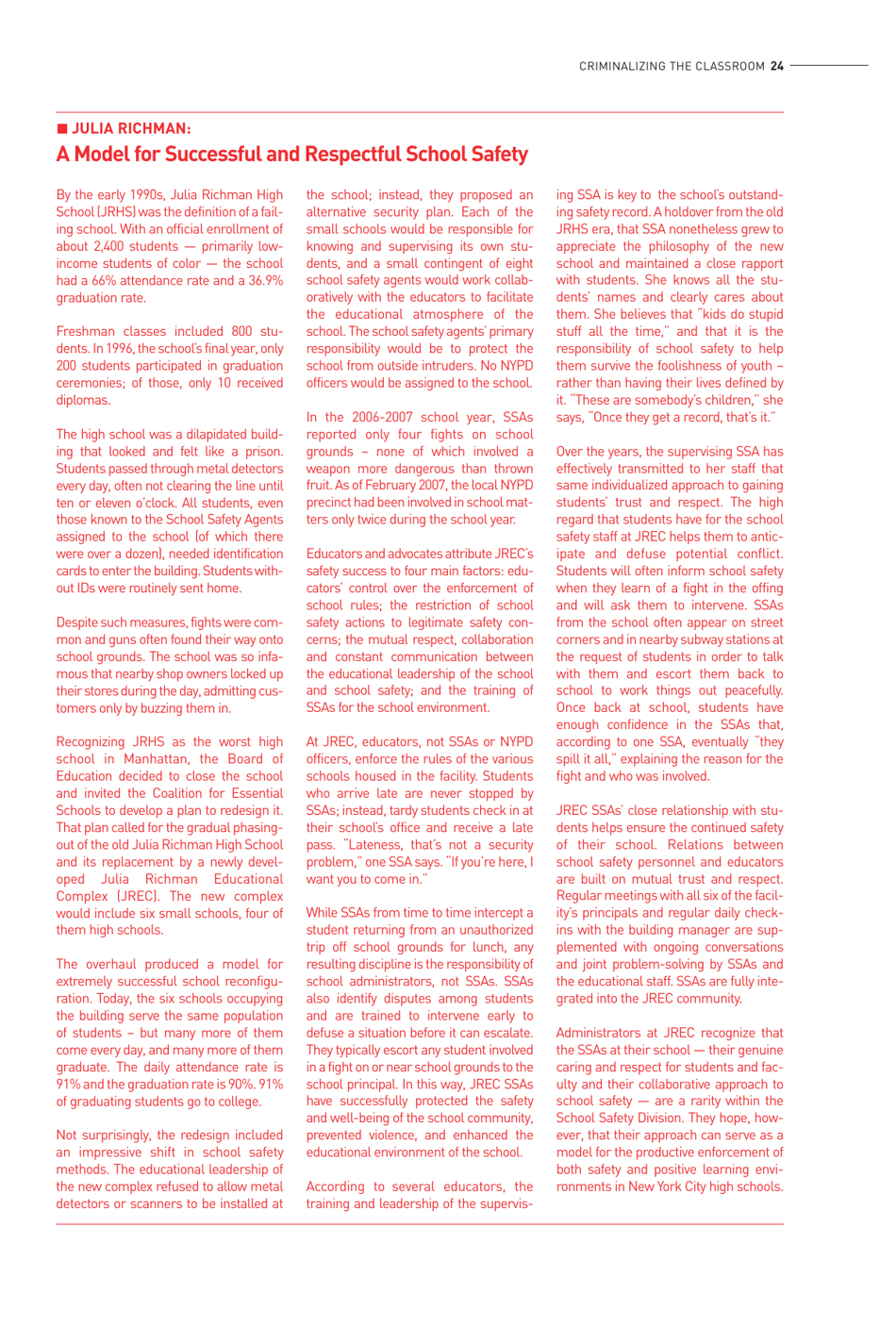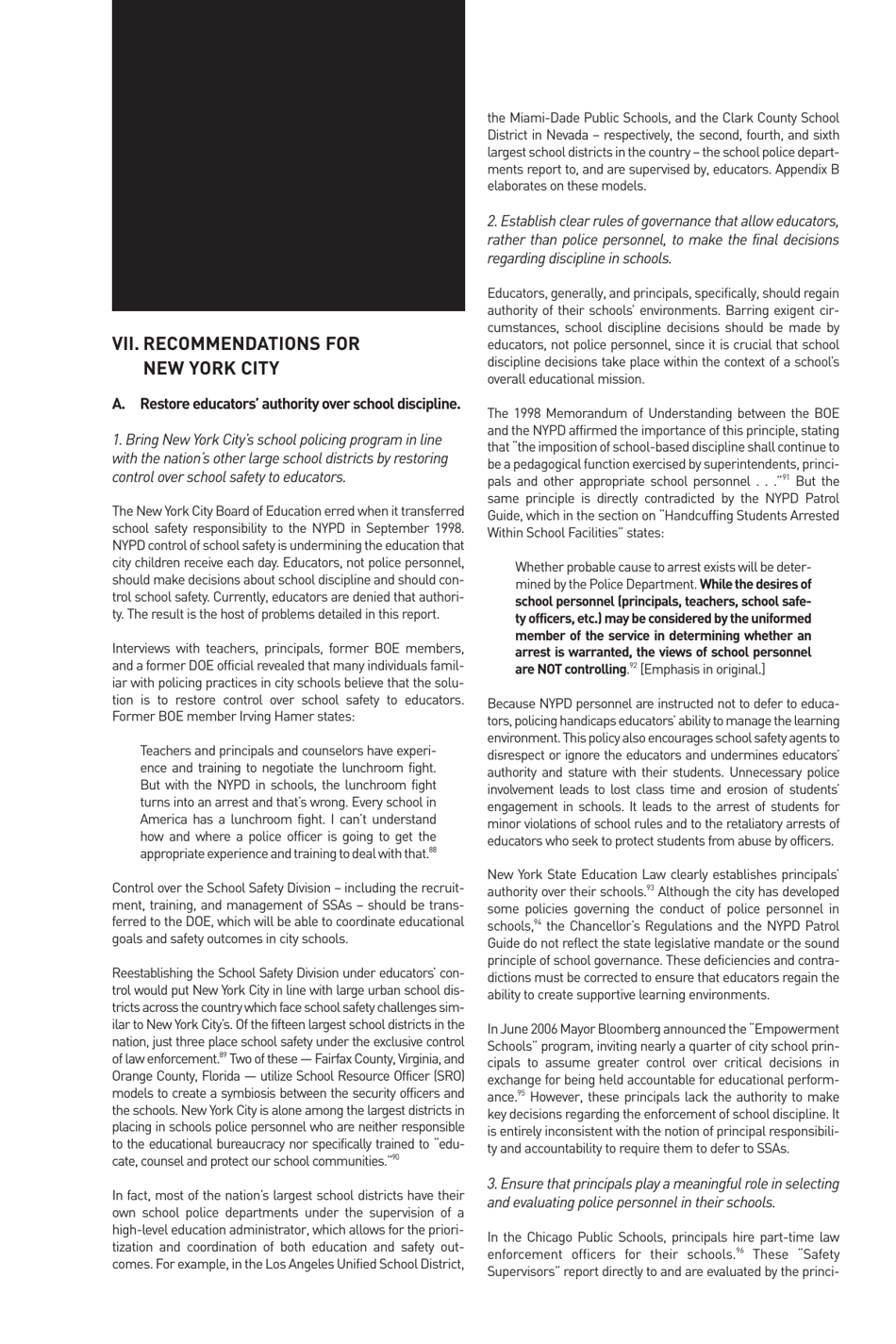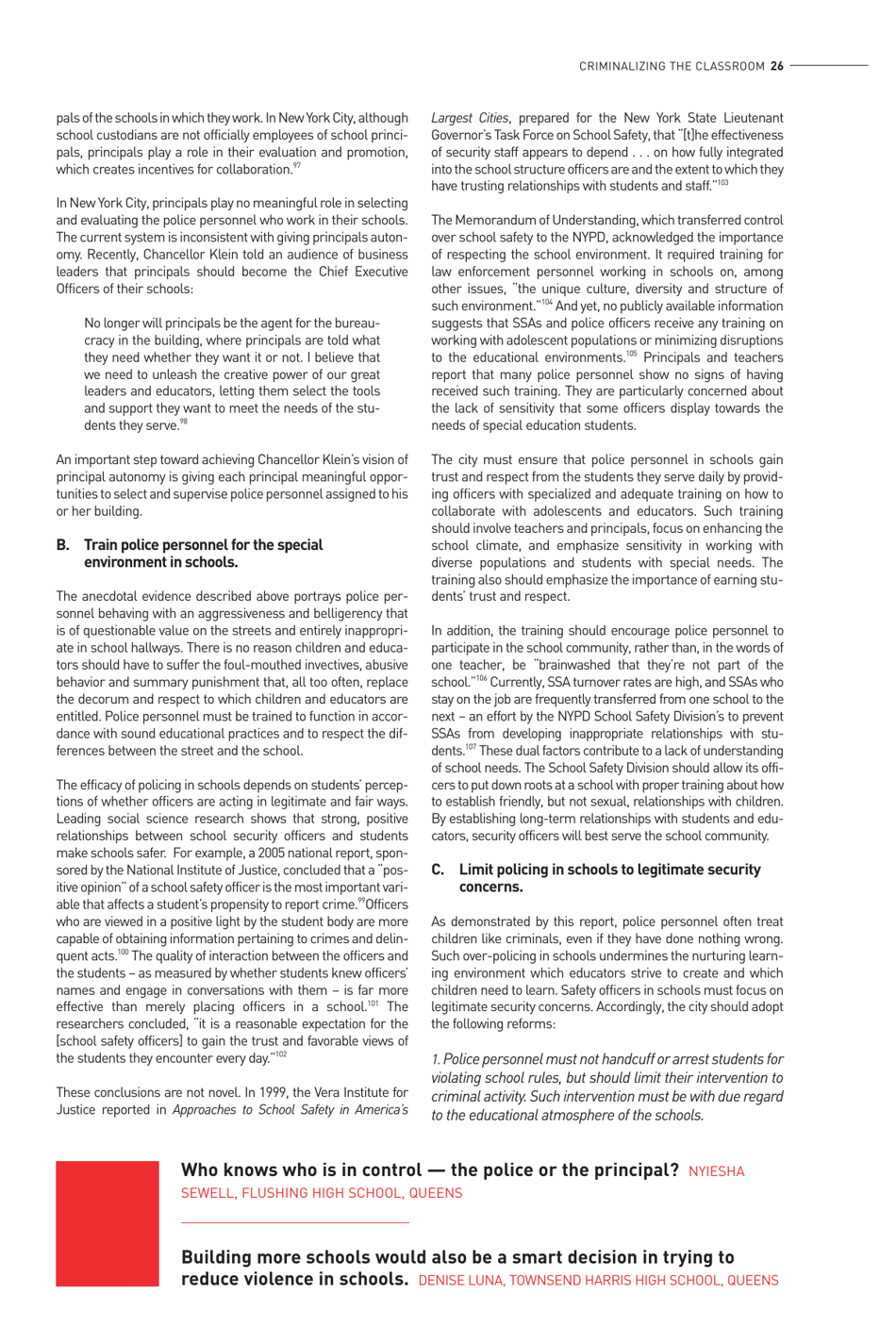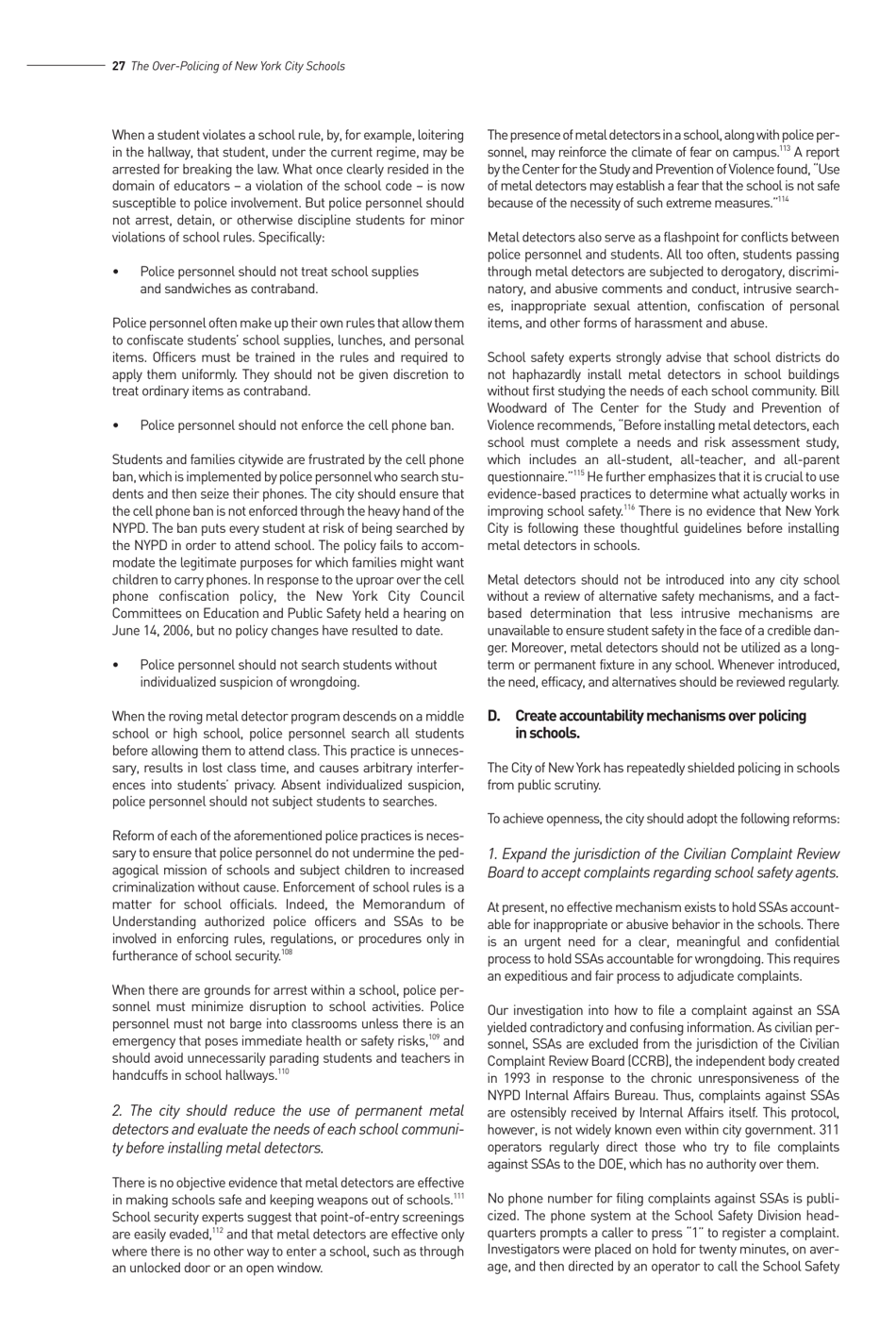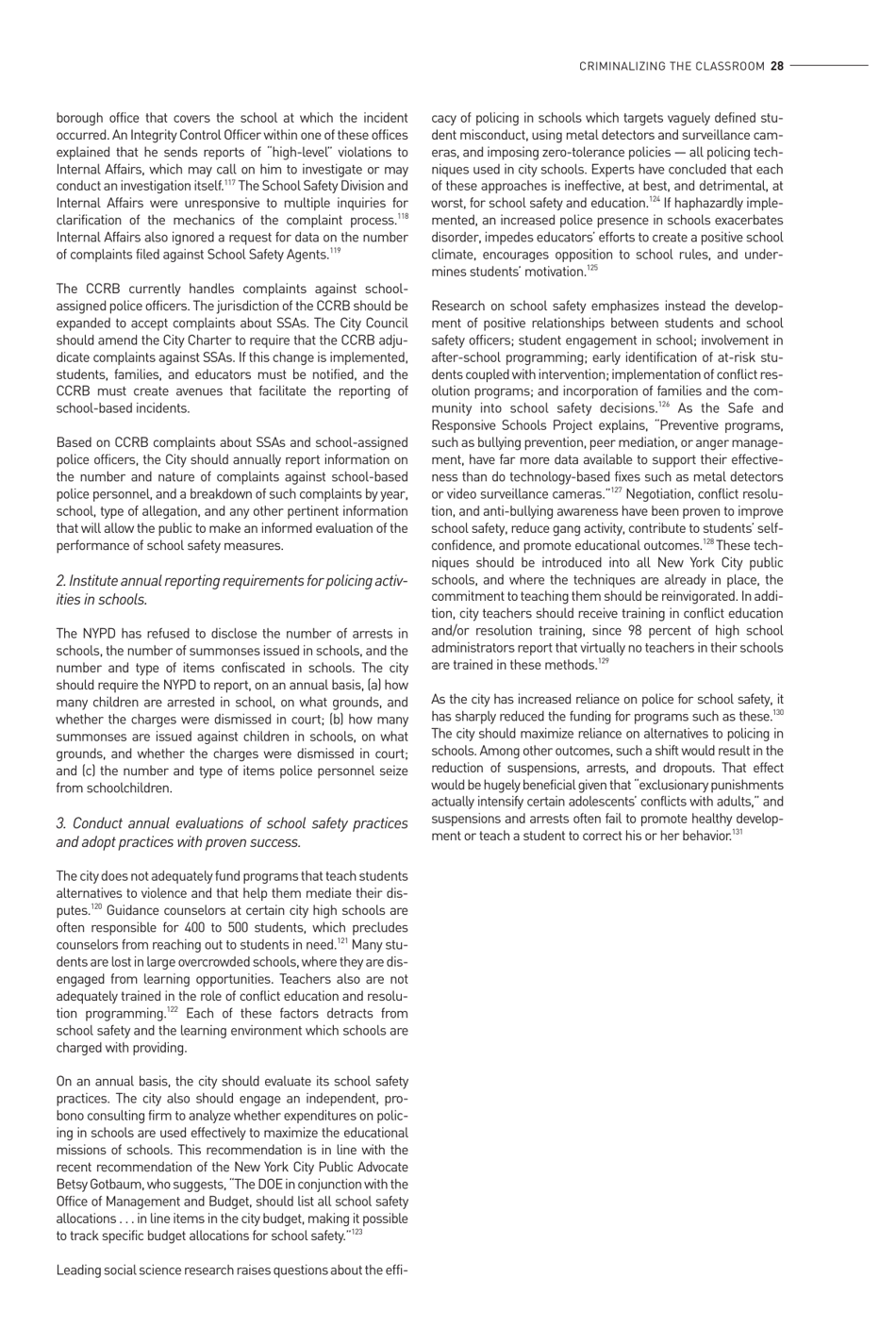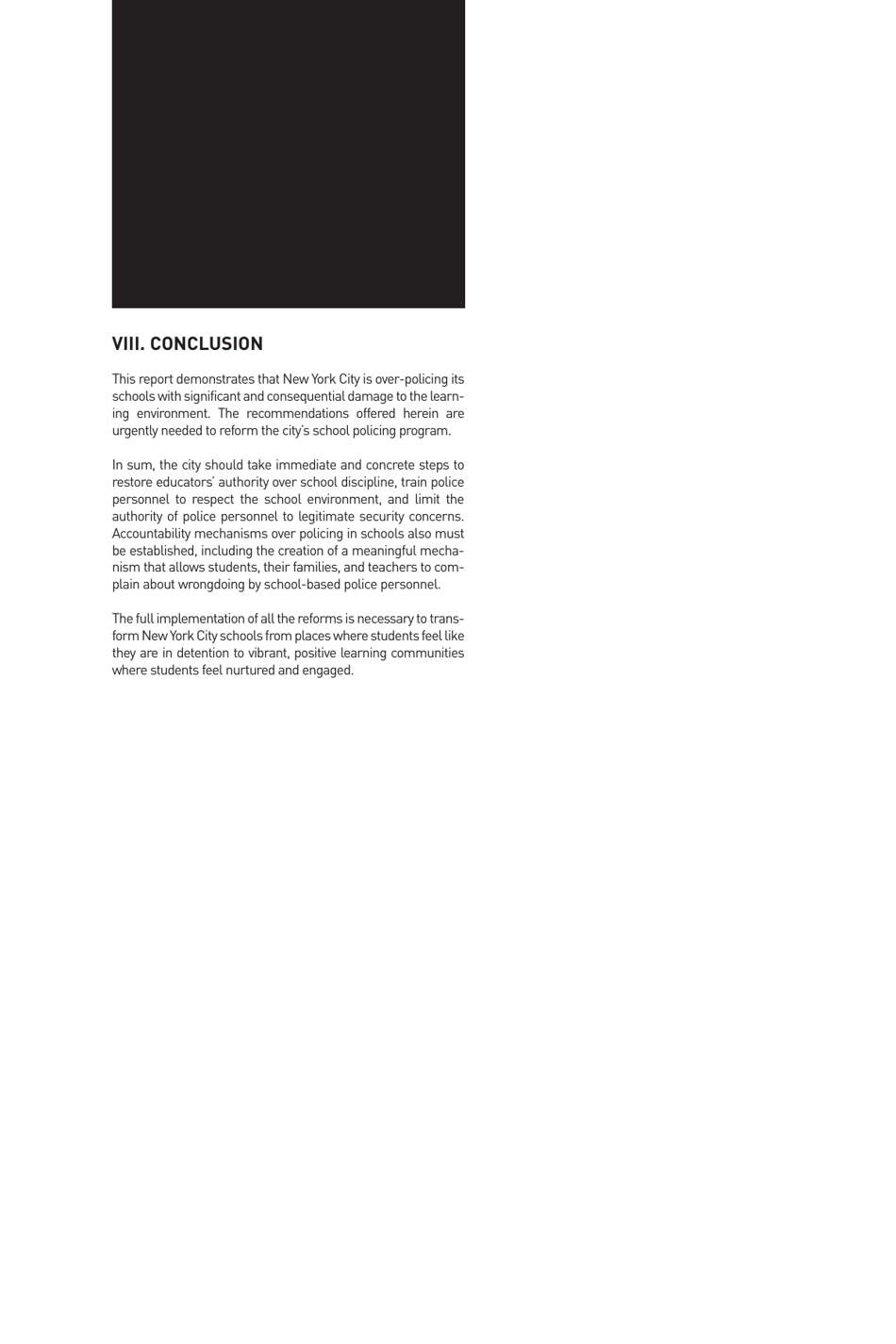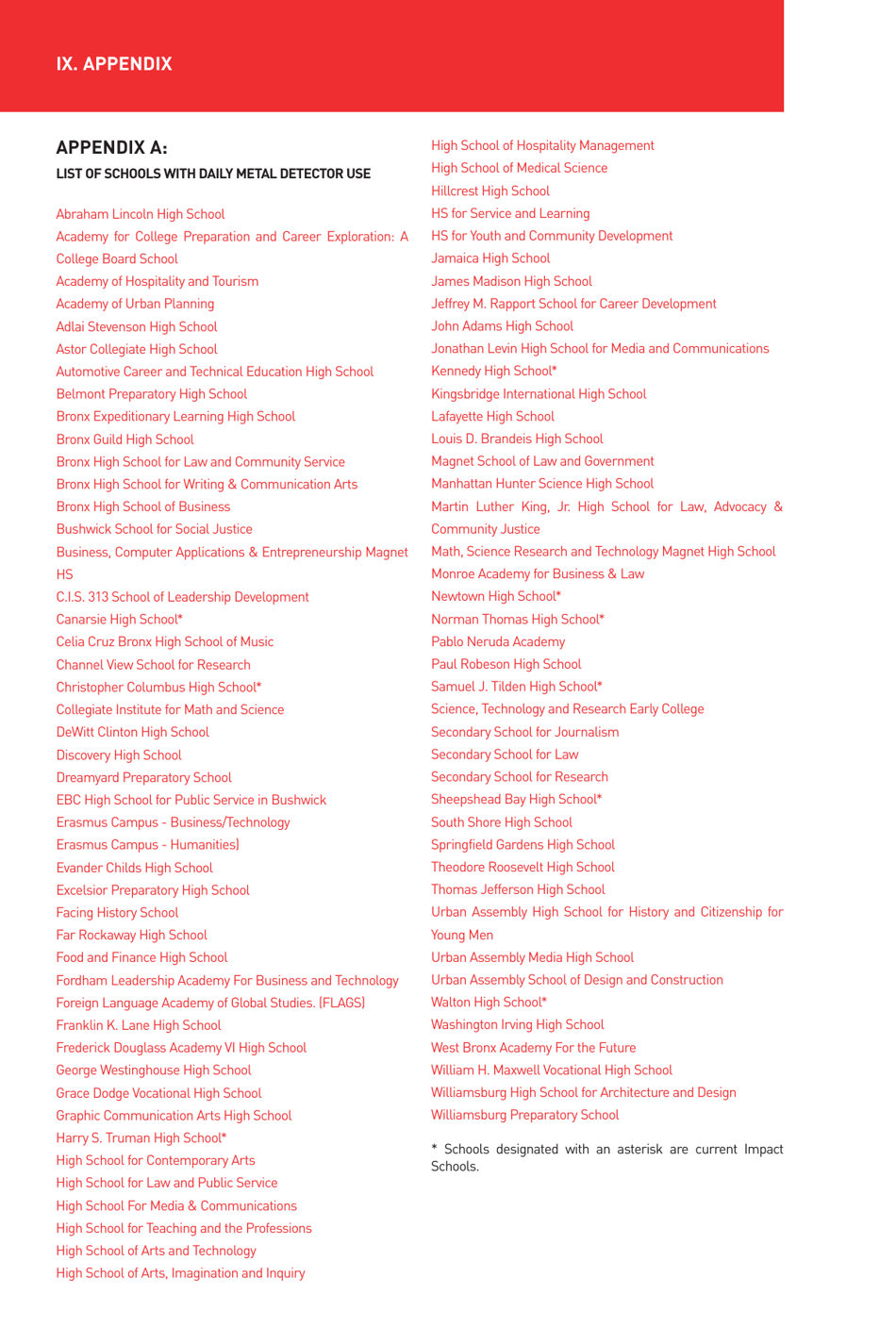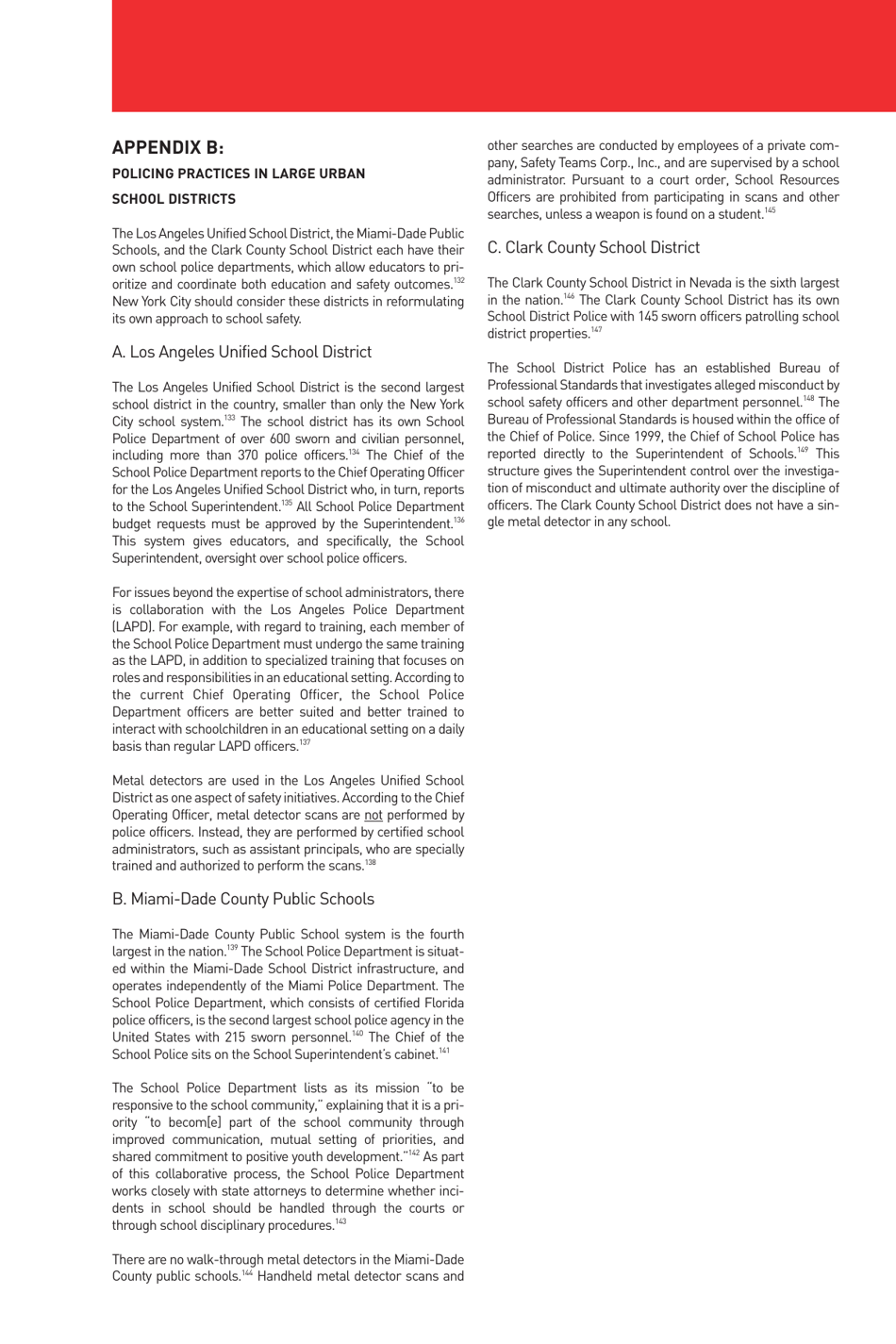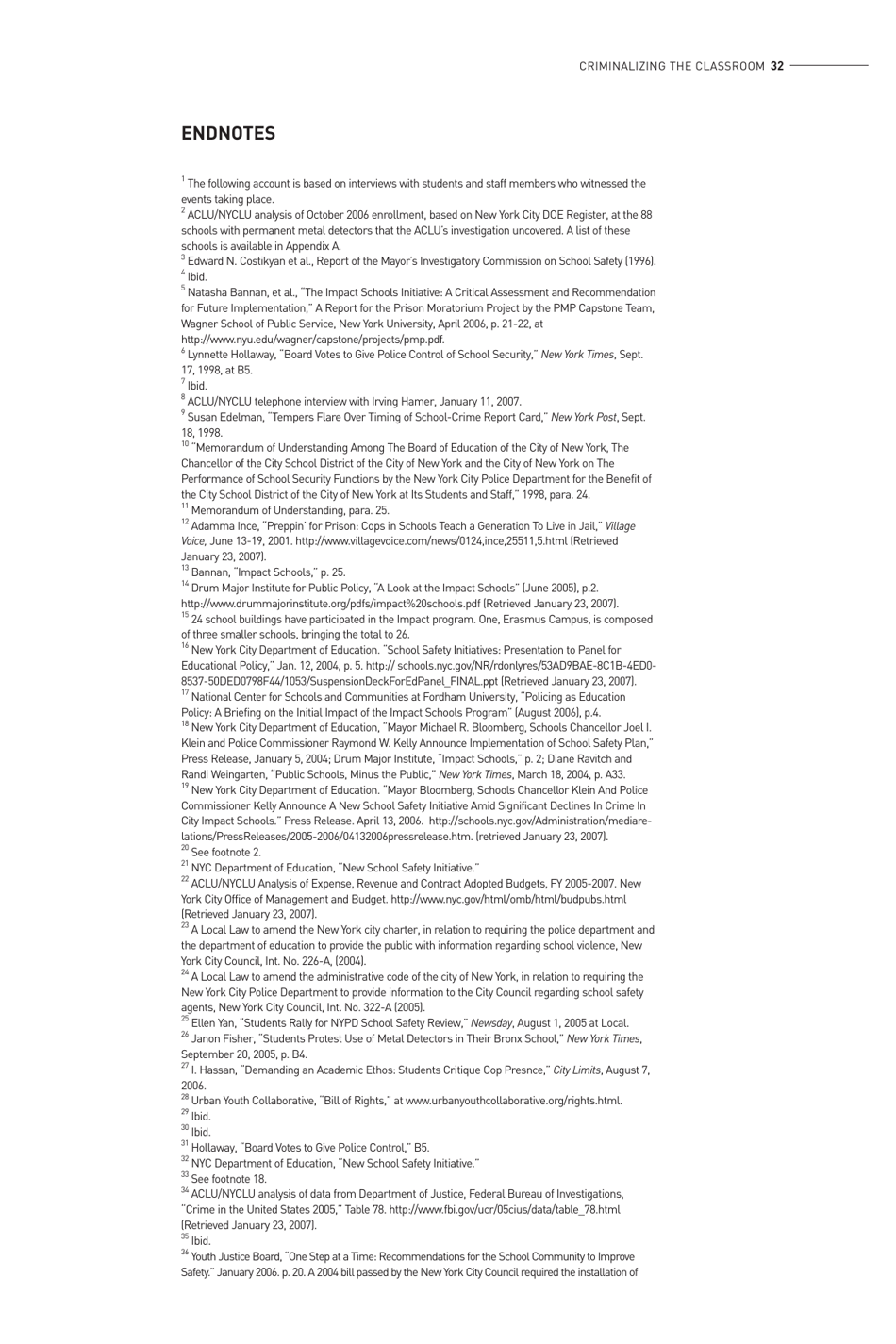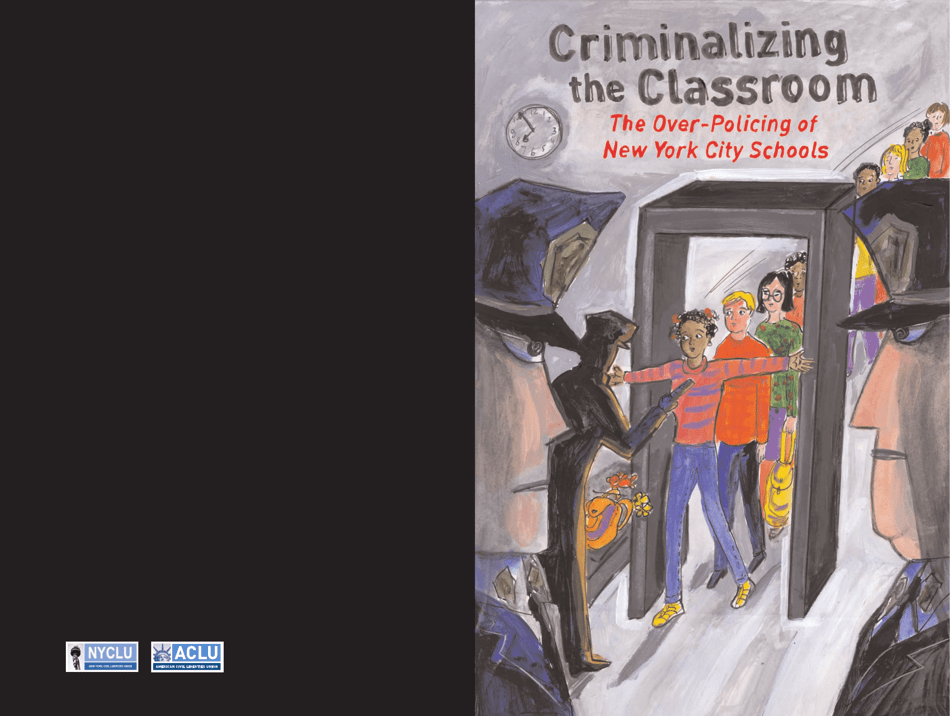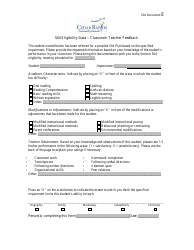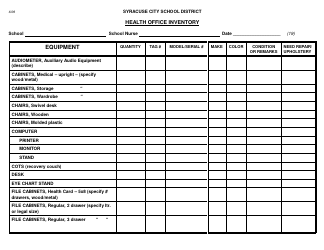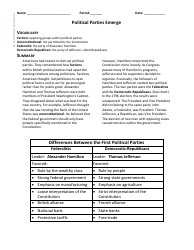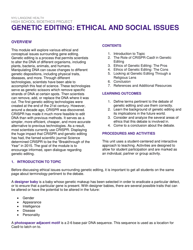Criminalizing the Classroom: the Over-policing of New York City Schools
"Criminalizing the Classroom: The Over-policing of New York City Schools" is a document that critically examines the issue of excessive policing and the negative impact it can have on students in New York City schools. Its purpose is to shed light on the problem and advocate for changes that promote a more supportive and inclusive learning environment.
The document "Criminalizing the Classroom: the Over-policing of New York City Schools" was most likely filed by an organization, researcher, or author interested in addressing the issue of excessive policing in NYC schools. It is important to note that without specific information about the document, it is difficult to provide a definitive answer.
FAQ
Q: What is the document about?
A: The document is about the over-policing of New York City schools.
Q: What does over-policing mean?
A: Over-policing refers to the excessive presence or involvement of police in certain areas or institutions.
Q: Why is the over-policing of schools a problem?
A: The over-policing of schools can lead to negative consequences such as the criminalization of students and contributing to the school-to-prison pipeline.
Q: What is the school-to-prison pipeline?
A: The school-to-prison pipeline refers to policies and practices that push students, especially those from disadvantaged backgrounds, out of schools and into the criminal justice system.
Q: How does over-policing affect students?
A: Over-policing can create a hostile and intimidating environment for students, leading to increased suspensions, arrests, and a negative impact on their educational experience.
Q: What are some alternatives to over-policing in schools?
A: Alternative strategies include implementing restorative justice practices, investing in social and emotional support for students, and reducing the reliance on law enforcement for school discipline.
Q: What are the recommendations to address the over-policing of schools in New York City?
A: Some recommendations include reducing the presence of police officers in schools, increasing funding for support services, and implementing policies that prioritize student well-being over punishment.
